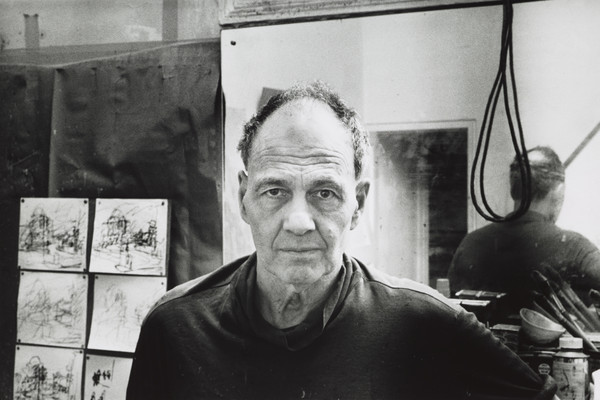Renowned painter Frank Auerbach, a child refugee from Nazi Germany who became one of Britain’s most celebrated 20th-century artists, has died at the age of 93, his representatives confirmed Tuesday. Auerbach passed away on Monday at his London home.
Geoffrey Parton, director of Frankie Rossi Art Projects, remembered Auerbach as “a dear friend and remarkable artist,” adding that his creative legacy will “resonate for generations to come.”
Born in Berlin in 1931, Auerbach arrived in England in 1939 under the Kindertransport program, which evacuated primarily Jewish children from Nazi-occupied territories. His parents, an engineer and an aspiring artist, were both killed at Auschwitz. Auerbach’s formative years were spent in London, where he studied at St Martin’s School of Art and the Royal College of Art, before committing himself fully to his art.
Working from the same north London studio from 1954 until his death, Auerbach developed a distinctive style, creating dense, textured canvases that blended abstraction with figurative elements. He was a prominent member of the “School of London,” alongside post-war artists like Francis Bacon, Lucian Freud, and Leon Kossoff. Despite shifting trends, Auerbach maintained his dedication to figurative painting, known for his method of reworking canvases until he achieved something unexpected, estimating that 95 percent of his paint ended up discarded.
Auerbach gained international acclaim, representing Britain at the 1986 Venice Biennale, where he won the prestigious Golden Lion. His works commanded high prices later in life, with his painting Mornington Crescent selling for a record $7.1 million in 2023. His final exhibition, Frank Auerbach: The Charcoal Heads, opened in February at London’s Courtauld Gallery, marking the closing chapter of a career defined by innovation and dedication.










